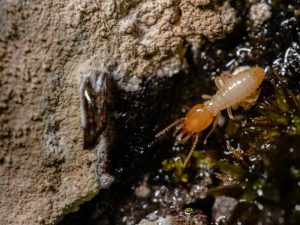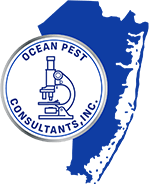Pest control is a critical concern for homeowners in New Jersey, where diverse climates and environments create ideal conditions for various pests. Among these, termites and bees are two common nuisances that can pose significant problems if not addressed promptly and effectively. Understanding the best practices for treating termite infestations and managing bee populations can help protect your property and ensure a safe environment for your family.
Understanding Termite Threats
 Termites are often referred to as “silent destroyers” because they can cause significant damage to wooden structures before their presence is even detected. In New Jersey, the most common species of termites are the Eastern Subterranean Termites and Formosan Termites. These pests thrive in the moist soil conditions prevalent in the region and can rapidly compromise the structural integrity of your home.
Termites are often referred to as “silent destroyers” because they can cause significant damage to wooden structures before their presence is even detected. In New Jersey, the most common species of termites are the Eastern Subterranean Termites and Formosan Termites. These pests thrive in the moist soil conditions prevalent in the region and can rapidly compromise the structural integrity of your home.
Termite Treatments
To combat termite infestations, it’s essential to employ a combination of preventative and responsive measures:
- Inspection and Identification: The first step in effective termite control is a thorough inspection. Professional pest control experts use specialized tools and techniques to detect termite activity in hidden areas, such as within walls and beneath floors. Identifying the species of termites present can also influence the treatment strategy.
- Chemical Treatments: Once an infestation is confirmed, chemical treatments such as termiticides are commonly used. These chemicals create a barrier around the property, preventing termites from accessing the structure. Termiticides can be applied to the soil around the foundation or injected into the wood where termites are active.
- Bait Systems: Another effective method is the use of bait systems. Termite baits contain slow-acting insecticides that termites carry back to their colony. This method targets the entire colony, including the queen, leading to a more comprehensive eradication.
- Moisture Control: Since termites are attracted to moisture, controlling the moisture levels around your home can help prevent infestations. This includes fixing leaks, ensuring proper drainage, and maintaining a well-ventilated crawl space.
Managing Bee Populations
Bees play a crucial role in our ecosystem by pollinating plants, but their presence around residential areas can pose risks, particularly if they establish hives close to human activity. In New Jersey, several bee species are commonly encountered, including honeybees and yellow jackets. While honeybees are generally not aggressive, yellow jackets can be more troublesome and potentially dangerous.
Bee Management Strategies
- Identification and Prevention: The first step in managing bees is to identify the species and understand their behavior. For instance, honeybees are often found in large, established colonies, while yellow jackets are more likely to nest in the ground or within wall voids. Preventive measures, such as sealing entry points and removing attractants like food waste, can reduce the likelihood of attracting bees.
- Professional Removal: If a bee colony is established near your home, it’s advisable to seek professional pest control services. Attempting to remove a bee hive on your own can be dangerous and may provoke aggressive behavior. Pest control professionals have the expertise and equipment to safely remove the hive and relocate it if possible.
- Natural Solutions: For less severe infestations or to complement professional services, natural deterrents such as essential oils or vinegar solutions can help repel bees. These solutions are best used as supplementary measures rather than primary treatments.
- Long-Term Prevention: To prevent future bee problems, consider implementing long-term strategies such as regular property inspections and maintenance. Removing potential nesting sites and using bee-safe practices can help keep these beneficial insects at a safe distance.
Effective pest control in New Jersey involves a proactive approach to managing both termites and bees. By understanding the nature of these pests and employing targeted treatments, homeowners can protect their properties from damage and ensure a safe living environment. Whether you’re dealing with a termite infestation or managing a bee population, professional pest control services can provide the expertise and solutions needed to address these challenges effectively. Investing in regular inspections and maintenance can also help prevent future issues and maintain a pest-free home.

Leave A Comment